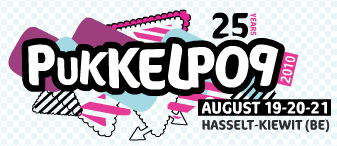There are things that are as obvious as daylight. There are things that I need to research and think over to understand. And there are things that feel like I’ll never understand. Wakoopa is one of them.
I first heard about Wakoopa back in April when I was in Amsterdam, at The Next Web 2008 Conference. Wakoopa is a European social network that unites people who want to share the information about software they use. If you are one of them, all you need to do is register at the network and download client software to install on your computer. Once you are done, Wakoopa will track which software you use and how (often). It will then upload these information to the social network, where you will be able to find other people who use the same software (advice? shared experience?) as well as other software that people similar to you use (expanding horizons?).
The booth of Wakoopa startup was one of the busiest at the conference. And the company went through a few investment rounds, one of which I just read about in The Next Web blog.
And I still don’t get it.
First of all, I have the feeling that software moves to the web. Not all of it and not as fast as I’d like it to, but the future seems to be pretty much web-based. Secondly, those people who are technically literate enough to find, download, and install Wakoopa, are, I belive, literate enough to figure out their issues with current software and find similar software if need be, using nothing by Google and IRC. Thirdly, there is this evergrowing privacy concern, that itches every time words “tracking” and “sharing” are used. Fourthly, there is the question of licensed software vs. pirated software, which needs to be addressed by way too many Windows users (primary target for Wakoopa software and social network). Fifthly, there are likely to be quite a few conflicts between people at work and corporate sysadmins. Sixthly, …
With all that, I can still see that there will be a few people here and there who would probably like to participate in this experiement. But, the thing that I don’t quite understand is how this experiment became so large. I mean, there are millions of investment, thousands of users, and lots and lots of hype. I don’t get it. Anyone care to explain? Or guess maybe?
P.S.: Not that I am jelous of Wakoopa or anything. They are doing something that apparently has a lot of demand, so I wish the best of luck to them.
